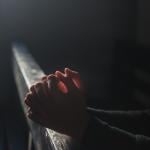Vatican City, Dec 7, 2014 / 11:04 am (CNA/EWTN News).- In an interview with the Argentine daily “La Nacion” published Sunday, Pope Francis spoke on a variety of topics, giving specific attention to the ongoing reform of the Roman Curia, and some of the resistance he’s facing. “I am not worried. It all seems normal to me; if there were no difference of opinions, that wouldn't be normal,” the Pope told Elisabetta Piqué in an interview published in La Nacion Dec. 7. “Resistance is now evident. And that is a good sign for me, getting the resistance out into the open, no stealthy mumbling when there is disagreement. It's healthy to get things out into the open, it's very healthy.” With topics ranging from his health to future travels and birthday plans, the Roman Pontiff spent most of the 50 minute interview talking about his plan of reform for the Roman Curia, which he said will be an ongoing process that extends beyond the projected finish date of 2015. The Bishop of Rome revealed that he had no expectations regarding the “cleansing process” of the Curia before starting, because “I expected to go back to Buenos Aires.” “After that, well, I don´t know. You see, God is good to me, he's bestowed on me a healthy dose of unawareness. I just do what I have to do.” Pope Francis responded to the fact that nearly 21 months after he was elected to as Bishop of Rome, differing opinions are beginning to surface more clearly regarding some of the changes he is implementing. However, the Roman Pontiff said that facing resistance isn’t something to be afraid of, because “to me, resistance means different points of view, not something dirty.” Resistance, he said, “is connected to some decisions I may occasionally take, I will concede that. Of course, some decisions are more of the economic type, and others are more pastoral.” The Roman Pontiff also addressed comments suggesting that the “honeymoon is over” due to divisions that surfaced during the Synod on the Family held in October, saying that the issue was not so much the Pope as it was differing pastoral positions. This is evident and can be clearly seen by looking at the widespread enthusiasm with which his final speech was accepted, he said. In regards to media buzz during the synod due to comments by Cardinal Raymond Burke suggesting that the Church is like “a ship without a rudder,” the Pope said that “those expressions strike me as odd.” “I am not aware of anybody using them. The media quote them,” he said, admitting that “until I can ask the people involved ‘have you said this?’ I will have brotherly doubts.” The Bishop of Rome also addressed the appointment of Cardinal Burke as Patron of the Sovereign Military Order of Malta, following his six years serving as prefect of the Supreme Tribunal of the Apostolic Signatura. Announced shortly after the synod, the decision has drawn speculation from all sides, with many contributing the move to the cardinal’s comments during the synod as well as his staunchly conservative viewpoints on Church doctrine. Pope Francis said that sometime before the synod Cardinal Burke had asked what he would be doing, since his position as prefect of the Signatura was not confirmed. The Roman Pontiff responded by asking for some time while the Council of Nine cardinals assisting him in Church reform thought about their legal restructuring. “I told him nothing had been done about it yet and that it was being considered. After that the issue of the Order of Malta cropped up and we needed a smart American who would know how to get around and I thought of him for that position,” the Pope said. “I suggested this to him long before the synod,” he continued, explaining that he wanted the announcement to be made after the synod was over so that the cardinal could participate in the discussions. As chaplain of Malta Cardinal Burke would not have been able to be present, he explained. “He thanked me in very good terms and accepted my offer, I even think he liked it. Because he is a man that gets around a lot, he does a lot of travelling and would surely be busy there. It is therefore not true that I removed him because of how he had behaved in the synod.” The Roman Pontiff also spoke of the continuing reform of the Roman Curia, saying that it’s a slow process and “We're tackling it little by little.” Pope Francis referred to the restructuring of the Institute for Religious Works, also called the Vatican Bank. He said that it is “operating beautifully” and that they did “quite a good job there.” He revealed that when he was elected Pope he had been planning to retire, and that once he moved to the Vatican he had to start his plans again from scratch, and that everything was new for him. “From the start I said to myself: ‘Jorge, don't change, just keep on being yourself, because to change at your age would be to make a fool of yourself.’” “That´s why I've always kept on doing what I used to do in Buenos Aires. Perhaps even making my old mistakes. But I prefer it like this, to be myself.” In wake of many people's concern regarding the Roman Pontiff’s various health scares during his first year as Bishop of Rome, as well as comments that he made on his flight back from South Korea in August about “going to the Father´s house,” the Pope said that he’s in a normal condition for his age. “I do have some aches and pains, and at my age ailments don't go unnoticed. But I am in God´s hands, up to now I have been able to work steadily.” The Roman Pontiff also talked about his future travels, revealing that he will not travel to Argentina in for the Eucharistic Congress in Tucumán in 2016 because it falls too close to World Youth Day, which is being held in Poland. However, he did reveal that he plans to visit three other Latin American countries in 2015, which he declined to name, as well as a trip to Africa. Read more















